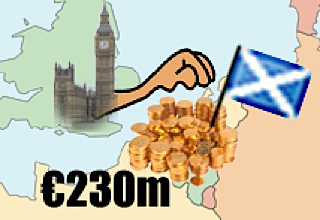On Sunday 12th August, British Prime Minister David Cameron hosted a hunger summit at Downing Street. Political leaders from Brazil, Kenya and India (among others), as well as representatives from NGOs and the private sector, were joined by double Olympic champion Mo Farah at the event where a plan to cut child malnutrition by the next Olympics in Rio was announced.

170 million children are currently suffering from stunted growth as a result of inadequate diet, which prevents them from fulfilling their potential. Cameron hopes to secure sufficient pledges to save 25 million children under five from stunting by 2016. It is hoped this target will be met through scientific innovation, better government accountability in developing countries and greater co-operation with the private sector.
The UK has promised a £120 million investment in research for drought-resistant and vitamin-enriched crops. Together with Canada, Ireland, the US and the Gates Foundation, Britain will invest in HarvestPlus: a programme for biofortified crops, to make nutrition-rich seeds and tubers availabe to people in Africa and India. Ahead of the summit, NGOs warned against the private sector liaison which involves companies such as Unilever, Syngenta and British drugmaker Glaxo Smith Klein.
Amy Horton from World Development Movement criticised the approach of marketing products to the ‘bottom billion’ of poor consumers: “It’s great that David Cameron is using the Olympics to focus attention on the need to reverse the rising incidence of child malnutrition. But by promoting the role of big business in developing countries’ food markets, his approach risks entrenching the root causes of hunger.” This concern is shared by campaign group Baby Milk Action, which stated that “public-private partnerships involve shared decision making. This can lead to the control of marketing practices that undermine breastfeeding, and sustainable, affordable, nutritious family foods being overlooked in favour of ‘market-led’ strategies.”




